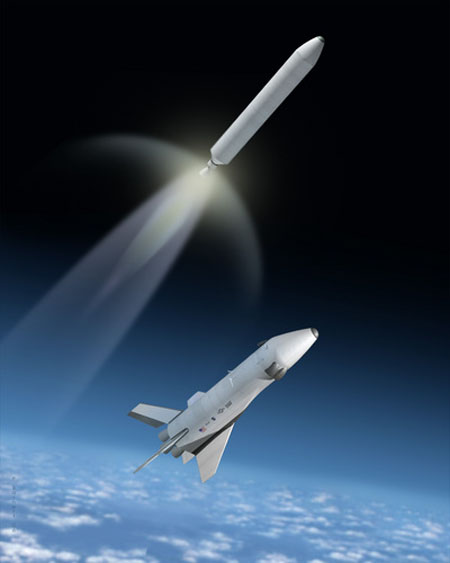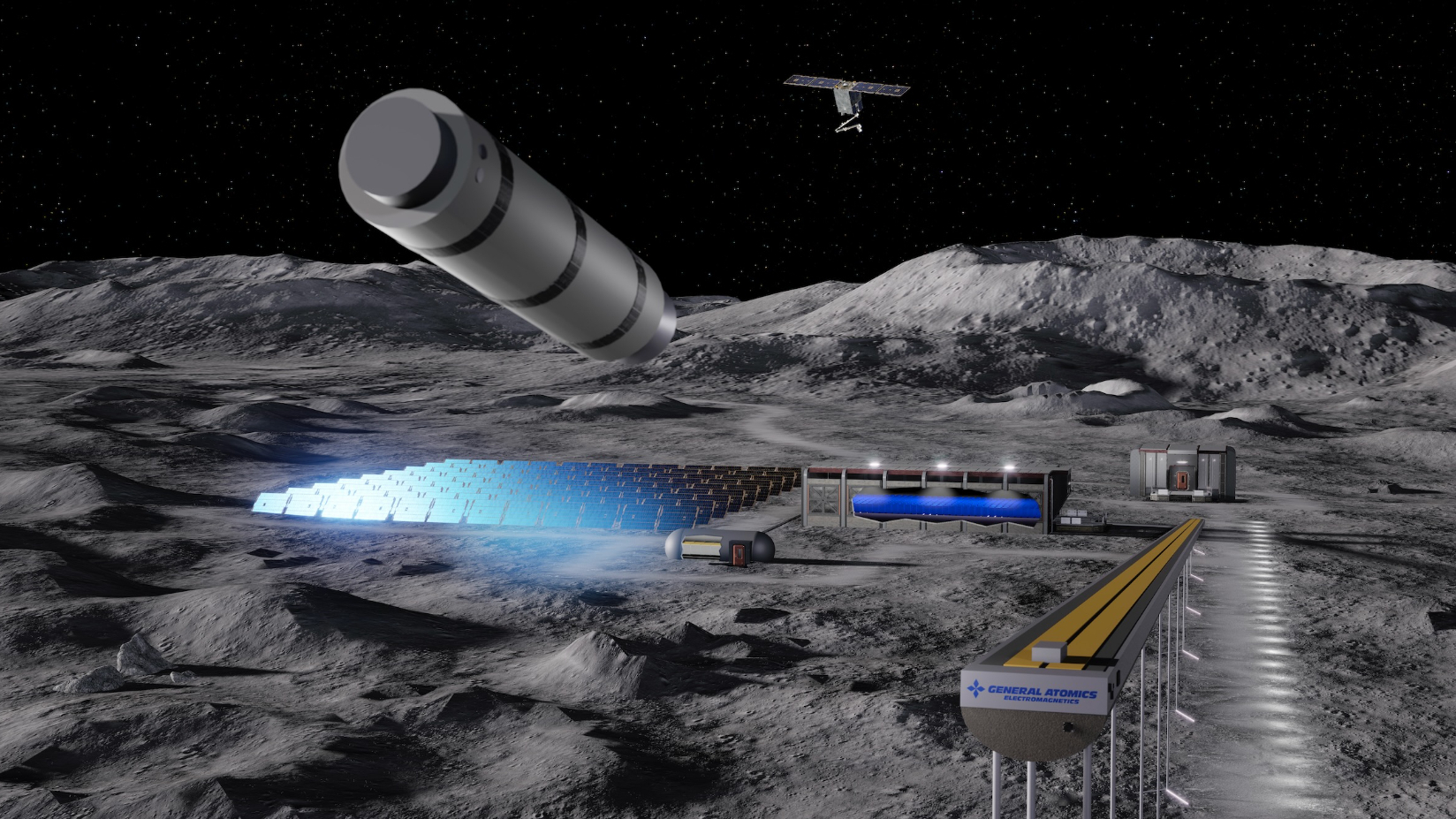Hybrid Air-Rocket Concept Touted For Rapid Launch

Breaking space news, the latest updates on rocket launches, skywatching events and more!
You are now subscribed
Your newsletter sign-up was successful
Want to add more newsletters?

Delivered daily
Daily Newsletter
Breaking space news, the latest updates on rocket launches, skywatching events and more!

Once a month
Watch This Space
Sign up to our monthly entertainment newsletter to keep up with all our coverage of the latest sci-fi and space movies, tv shows, games and books.

Once a week
Night Sky This Week
Discover this week's must-see night sky events, moon phases, and stunning astrophotos. Sign up for our skywatching newsletter and explore the universe with us!

Twice a month
Strange New Words
Space.com's Sci-Fi Reader's Club. Read a sci-fi short story every month and join a virtual community of fellow science fiction fans!
COLORADOSPRINGS, Colorado - A rapid-turnaround launch system capable of hurlingsatellites or special purpose payloads into Earth orbit in as little as 48hours is being touted by a major aerospace firm--Northrop Grumman Corporation.
The newconcept is being competed in a U.S. Air Force effort to develop quick launch ofspace hardware.
NorthropGrumman's idea is dubbed the Hybrid Launch Vehicle (HLV), dedicated to reducinglaunch costs by approximately two-thirds compared to the cost of using a mediumevolved expendable launch vehicle.
In astatement released today here at the National Space Symposium, Northrop Grummanofficials said the idea combines a reusable, airplane-like first stage withthrow-away upper stages. Launched vertically, the vehicle's winged first stageboosts the upper stages to speeds approaching seven times the speed of sound(Mach 7) before releasing them at an altitude of approximately 150,000 feet.
The upperstages then boost the satellite payload to orbit or deliver a conventionalweapon to a distant target, according to the press statement. Meanwhile, thefirst stage flies back and lands at its home base like an autonomous, unmannedaircraft. The first stage of the HLV will use a rocket engine during the boostportion of its mission, and an integrated set of air-breathing jet engines forits return flight.
Subscaledemonstrator
NorthropGrumman said it is defining the architecture for an operational version of thishybrid launch system under a 20-month, $3.0 million studies and analysiscontract with the Air Force's Space & Missile Systems Center, Los AngelesAir Force Base.
Breaking space news, the latest updates on rocket launches, skywatching events and more!
Thecontract includes a base amount of $1.5 million over 14 months, with an optionfor an additional $1.5 million over an additional six months.
Under thecontract, the company will also define a concept for a subscale demonstratorversion of the launch system, and the infrastructure required to execute ademonstration program. The subscale launch system, if developed, would be usedto demonstrate the technologies, processes and key attributes of an operationalsystem.
The currentstudies and analysis contract is the first step in a process that could leadultimately to the selection of two contractor teams to develop preliminarydesigns for the HLV.
At the endof the design competition, the Air Force may select a single contractor team todevelop and produce the HLV - Subscale Demonstration system, the NorthropGrumman statement pointed out.
"The HLVconcept offers the Defense Department a relatively simple, affordable way toput standardized, tactical satellites into orbit quickly after receiving arequest for support," explains Dennis Poulos, Northrop Grumman's HLV projectmanager.

Leonard David is an award-winning space journalist who has been reporting on space activities for more than 50 years. Currently writing as Space.com's Space Insider Columnist among his other projects, Leonard has authored numerous books on space exploration, Mars missions and more, with his latest being "Moon Rush: The New Space Race" published in 2019 by National Geographic. He also wrote "Mars: Our Future on the Red Planet" released in 2016 by National Geographic. Leonard has served as a correspondent for SpaceNews, Scientific American and Aerospace America for the AIAA. He has received many awards, including the first Ordway Award for Sustained Excellence in Spaceflight History in 2015 at the AAS Wernher von Braun Memorial Symposium. You can find out Leonard's latest project at his website and on Twitter.
